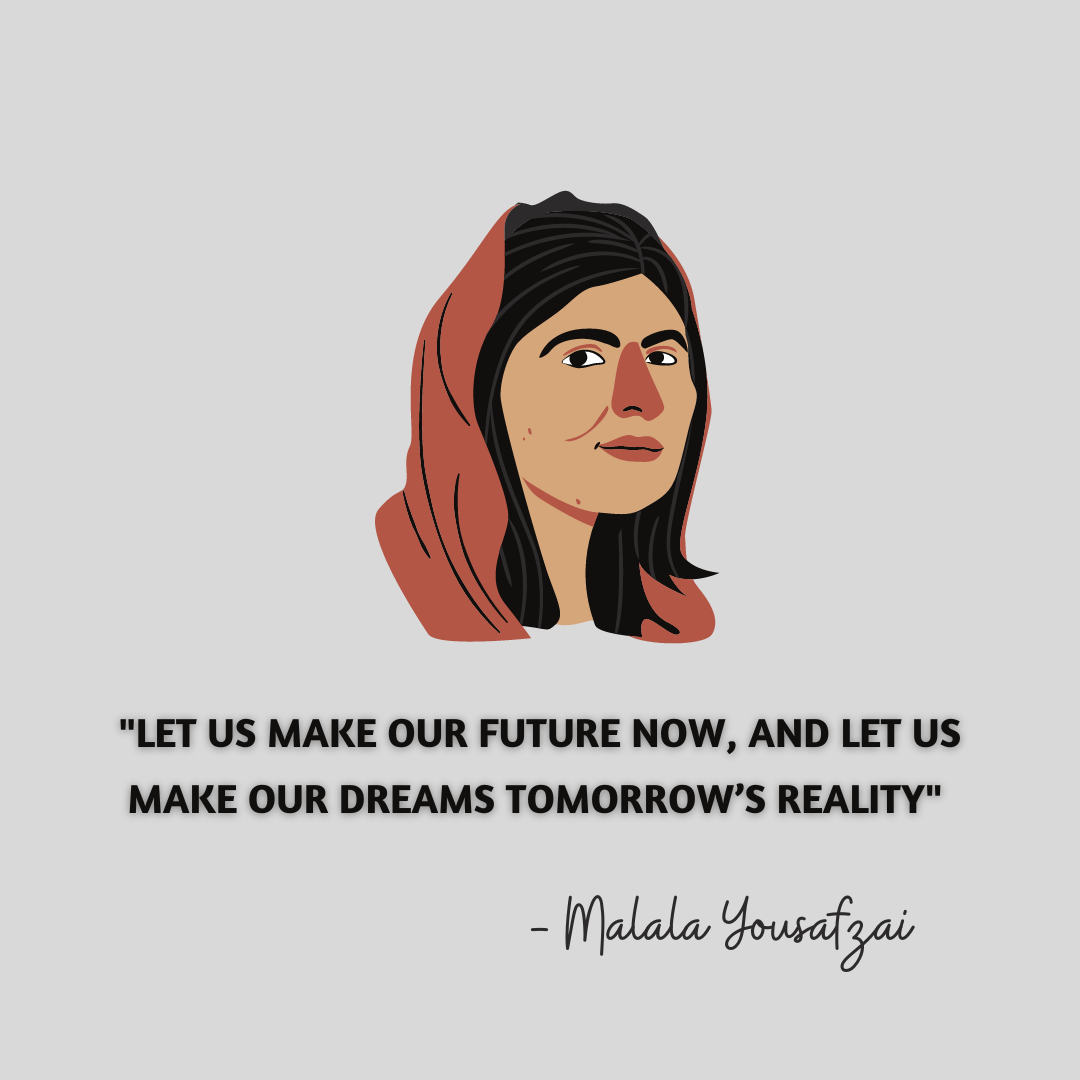Introduction
World Malala Day is observed in the honor of Malala Yousafzai on her birthday on July 12 every year. Malala Yousafzai is a women’s rights activist from Pakistan. She is known for her brave feat of stepping out of her house and going to school by risking her life. Young women and children see her as their idol. She has successfully united the youth of the international community towards the goal of education in socio-economically backward communities of the countries of the world.
Who is Malala Yousafzai?
Morning of October 9, 2012, a 15-year-old Malala was shot by the Taliban. The unfortunate event made international news, and the still minor Pakistani women’s rights activist’s story received global attention. Malala Yousafzai belongs to Mingora, Pakistan, and started activism in 2008, a year after the Taliban took control of her region and banned girls from receiving an education.
At an age of merely 11 years, Malala became an advocate of women’s rights along with her father. She openly criticized the ban by the Taliban on women’s education in her region on national television. Due to her growing presence in the media, especially after being featured in BBC Urdu, she was attacked by the Taliban and suffered a potentially fatal wound to her head which left her almost dead. Malala survived this attack and continued to fight for women’s right to education.
Malala Yousafzai was awarded the Nobel Peace Prize for her efforts in the field of women’s right to education in October 2014 when she was only 17 years old. She is the youngest individual to receive the Nobel Prize. On the 12th of July, nine months after she was shot in the head for demanding something as basic as education, she delivered an inspiring speech at the UN headquarters exemplifying her fearlessness and undeniable dedication. In her speech, she spoke about the right of every child, irrespective of gender or race, to receive an education. It led to the formulation of the right to education bill in Pakistan.
She is a global hero, and in 2015, even an asteroid was named after her. Malala has come a long way in her activism, receiving 40 awards for her continuous courage in fighting for the right to education worldwide. She has also received an honorary doctorate from the University of King’s College. When she turned 18, she started a campaign against violence, urging all leaders of the world to provide books instead of bullets. She also co-authored a book named ‘I am Malala’ which is an autobiography.
Suggested Read: How to Create a Healthy Learning Environment
How is Malala Day Observed?
World Malala Day is celebrated with events in more than 100 countries, with Malala as the symbol of heroism and education for women and girls. Every country, region, and organization emphasizes education for girl children through conferences, webinars, discussions, and interactions to spread awareness of the state of affairs of women’s education in various countries of the world. Due to her efforts, Pakistan has gained global attention for spending only 2.7% of its GDP on education and the fact that its literacy rate is 58%. The new generations see Malala as a pioneer and path-breaker to the cause of education and understand the importance of education as a fundamental right.
What is the Reason Children Do not Get Access to Education?
Malala has raised an important question for the world to contemplate upon. “What is the reason children do not get access to school?” The answer to this question is different for different regions. In some places, location is the reason. The remoteness of certain regions from the main city and difficult terrain makes education inaccessible. The unavailability of the internet adds to the difficulty to solve this problem. In most others, poverty and economic strain is the reason for the inaccessibility of education, while in others, the reason is purely political. In regions of political unrest, civil life is disrupted.
However, social backwardness and orthodoxy are the biggest causes of the violation of the right to education for women for the longest time. In the 21st century, when the world is surviving on technology, it is hard to imagine that certain regions are deprived of the basic need of any society, i.e., education. Keeping children away from education is to imprison them in ignorance and hinders their development into fully-functional human beings. This is why the right to education is closely related to the right to life.
Conclusion
Education is the foundation for growth. Malala Yousafzai brings the attention of global audiences to the pitiable state of affairs in countries that are facing political unrest such as Syria, Afghanistan, and Pakistan. Malala’s inspiring words were “I truly believe that the only way we can create global peace is through not only educating our minds, but our hearts and our souls.” She is a strong believer in the transformation that education can bring about in contemporary societies. She believes that it is the answer to purposelessness and aimless violence. On World Malala day, we not only remember her story of courage, but also her strife for peace. As members of society, we all must contribute to the collective goal of education and do our bit as conscious members of the global community.
Teachmint is one of the leading education infrastructure providers in the country. With our advanced learning management system, you can improve the teaching-learning experience. Our offerings like education erp, admission management system, fee management system, and others conveniently digitize educational institutions.






